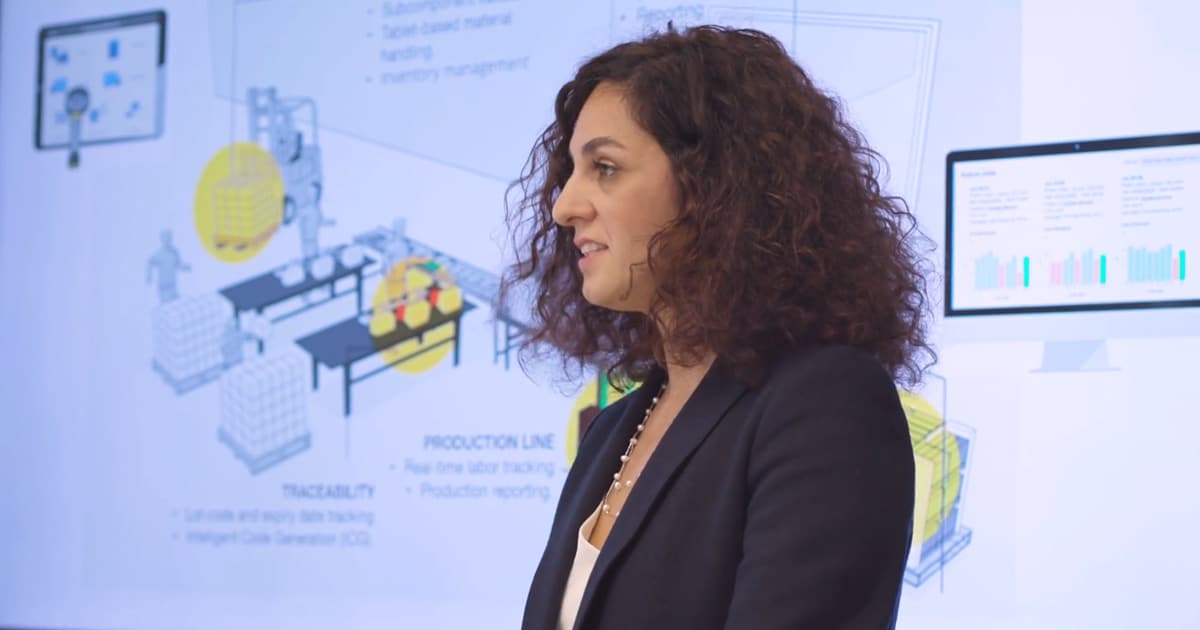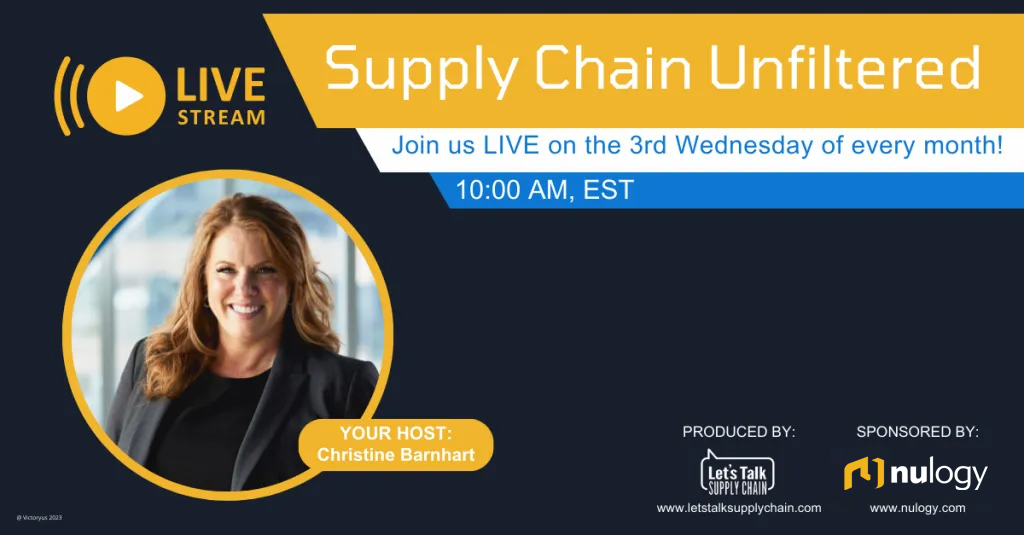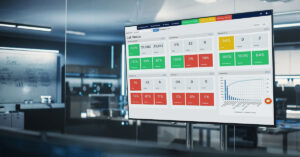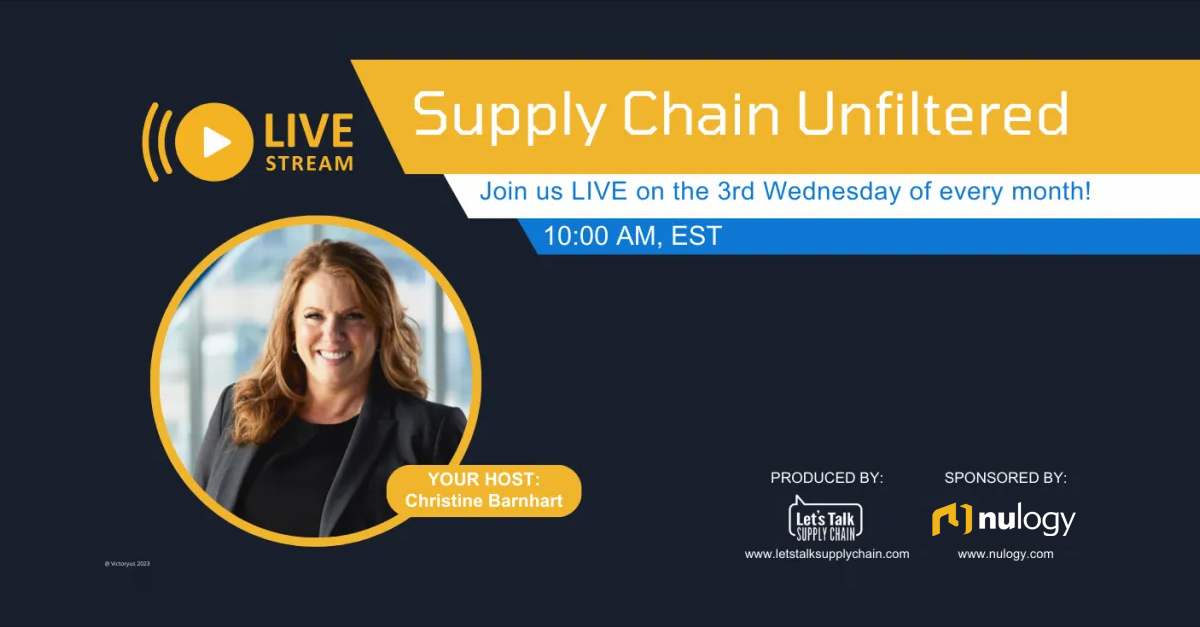As the host of Supply Chain Unfiltered, I have the privilege of speaking with some of the brightest minds influencing and shaping the future of supply chain management. My latest standout conversation was with Conrad Mandala, Executive Vice-President, GTM and Strategic Operations at Kinaxis.
During our dialogue, I pinpointed three pivotal learnings which underscore how new technologies are driving a profound shift in our industry. If you’re a supply chain leader—or aspiring to be one—these are the concepts that will shape your strategy in 2025 and beyond.
1. The Data Explosion: From Overload to Opportunity
One of the most immediate and overwhelming trends Conrad and I discussed is the sheer volume of data supply chain professionals are now dealing with. As he put it, “The biggest change has been ‘How much data?’”—a rhetorical question that captures just how dramatically the landscape has shifted.
But data alone isn’t enough. As Conrad emphasized, the challenge lies not just in accessing data, but in deciphering what’s relevant and actionable. We’re living in a world where supply chain planners, managers, and even leaders are inundated with inputs—from demand forecasts and supplier inventory levels to external geopolitical events and weather disruptions. The key lies in turning this flood into focused insight.
This is where technology, particularly AI, is making a difference. With solutions like supply.ai and demand.ai, Kinaxis is helping organizations sort signals from noise, using advanced algorithms to elevate the information that matters most. As someone who spent years in manufacturing, I know firsthand the pain of discovering too late that a key material shipment was delayed or a supplier had failed to even start production. Today, with solutions such as Kinaxis alongside Nulogy—which provides accurate, real-time external manufacturing data—that’s a problem that is much more preventable than in years past.
In fact, even shaving a few hours off the time it takes to make a decision can lead to millions in savings, as supported by thought leaders such as Lora Cecere of Supply Chain Insights in her 2024 research, “The Value of a Network-Based Approach.”
2. Connected & Concurrent Planning: Breaking Down Silos
Our second discussion theme was the transformative shift from siloed planning to connected and concurrent planning.
I spent the first two decades of my career in manufacturing, often frustrated by how disconnected departments and functions could be. You’d send out a master plan, and days later, someone in procurement would flag a major constraint—one they’d known about for a week. By then, it was too late: the plan was already being executed and changes were expensive or impossible to make, resulting in out of stocks, expedites, or cost overruns.
Connected planning eliminates this friction: it gives everyone—suppliers, planners, procurement, and operations—shared visibility into the same source of truth. As Conrad described, it’s like pulling a string that runs through the entire supply chain. When one part of the chain shifts—like a spike in demand during Black Friday—everyone feels it and can respond together.
Kinaxis takes this concept further with what they call “concurrent planning.” Imagine a circular, responsive planning process instead of a linear one. When demand signals shift, the entire system recalibrates in real time. Now, with Nulogy and Kinaxis working together, we’re extending that agility beyond the enterprise, bringing suppliers, including contract manufacturers and packagers, into the loop.
Together with our advanced planning partners, like Kinaxis, we’re enabling what I call “virtual vertical integration”—giving manufacturers the benefits of an integrated supply chain without owning every piece. It’s all about collaboration, visibility, and interoperability across multiple departments, functions and enterprises.
3. The Rise of the Ecosystem: Supply Chain as a Strategic Engine
The final learning—and perhaps the most transformative—is the realization that supply chain has evolved from a back-office function into a strategic, even existential, driver of business value.
As Conrad put it, “Supply chain is a critical value enabler.” And it’s not just us practitioners saying that—just ask any CEO or CIO. Whether it’s resilience, sustainability, or cost efficiency, the supply chain is now central to the business agenda.
This shift is part of a broader trend towards digital transformation, and I’m thrilled to see supply chain finally at the top of that priority list. It’s not just about using ERP, CRM, or HCM systems anymore. Supply chain is where companies are focusing their energy and investment in new and emerging technologies. Why? Because it impacts everything—from customer experience to environmental footprint.
Moreover, with the right technology, companies can now re-engineer their external ecosystems—not just their internal operations. That means tighter collaboration, smarter contracts, and shared value creation. Instead of squeezing suppliers for cost, companies are engaging in more mutually beneficial relationships, built on data, trust, and performance.
This isn’t theory—it’s happening. At Nulogy, we’re seeing large enterprises finally embrace the need to bring their suppliers along for the journey. It’s a shift from command-and-control to collaborative orchestration. And that mindset unlocks innovation across the network.
Looking Ahead: AI, Agility, and Accelerated Change
As we look to the rest of 2025 and beyond, Conrad shared Kinaxis’ roadmap—one deeply focused on leveraging AI to fuel real-time planning and execution. With new agent-based models and scenario capabilities, companies will gain even more agility to respond to change—not in days or weeks, but in minutes or hours.
Similarly for Nulogy, we have a lot of exciting news in store and we can’t wait to share in the coming months. It’s an exciting time to be in supply chain. We’re not just moving products—we’re moving businesses forward. We’re helping them survive disruptions, tap new markets, reduce waste, and support a more sustainable planet.
Final Thoughts
If there’s one thing I took away from my conversation with Conrad, it’s that we’re standing on the edge of something big. The convergence of data, AI, and ecosystem collaboration is giving us tools we never had before—and with them, the power to build better, smarter, more responsive supply chains.
At Nulogy, we’re proud to be part of this movement. And if you’re looking to evolve your supply chain from a cost center into a competitive advantage, now’s the time to act.
Connect with Christine on LinkedIn and watch past episodes of Supply Chain Unfiltered.


















